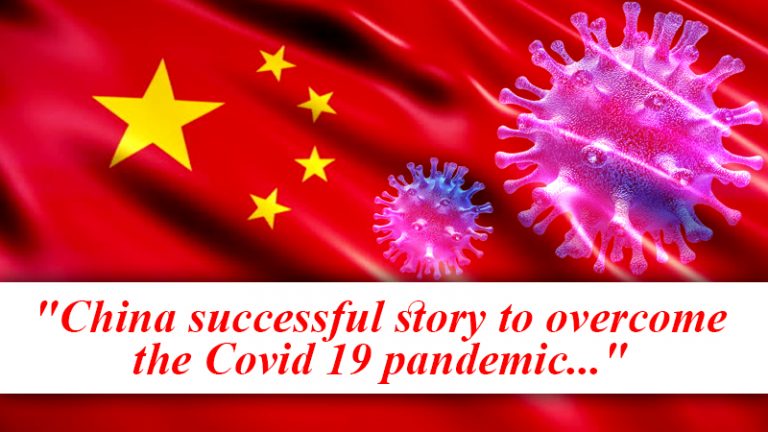
The Covid-19 epidemic is a major public health emergency today as WHO announced the outbreak as a pandemic on 11 March 2020. It is the most extensive to afflict humanity in a century. A serious crisis for the entire world, and a daunting challenge, it poses a grave threat to human life and health. The outbreak which was first identified in Wuhan China, in December 2019 is currently wreaking havoc throughout the world. The Chinese government was quick to quarantine Wuhan and mobilize all possible resources for support. Wuhan, the capital of Hubei province and the epicenter of Covid-19 pandemic in China, was put under lockdown to stem the spread of the disease across the mainland and beyond. Wuhan residents were not allowed to go out of the city, while essentials and medical supplies kept flowing inside. Social restrictions have been imposed across the city. The First World countries like the USA, Italy, the UK, having a giant health infrastructure failed to contain COVID-19 so far. However, China have succeeded to contain the virus successfully. Its success story is one among those that earned praise across the world.
As the COVID-19 cases surge across the world, China made all transport lines linking provinces, cities, or even villages under control. Similarly, non-essential public facilities like gardens, museums, cinemas and restaurants were closed. People were advised to avoid unnecessary travel, social activities and public gatherings. Wearing a face mask and having the average body temperature were musts for access to public areas, including supermarkets and outdoor vegetable markets. Most significantly, people who had recently travelled to Wuhan were classified into high-risk groups and put under home quarantine for two weeks. Those who showed Covid-19 symptoms were taken to designated hospitals by negative-pressure ambulances for further examination and treatment. All expenses were covered by medical insurance and government subsidies. Even during the worst days in Wuhan, the people did not suffer because a new logistics system was put into place by grassroots officials and volunteers. With their basic needs being met, the Wuhan people would rather stay at home than go outside and risk being infected. Likewise, healthcare staff fighting on the frontline; officials and volunteers were provided logistics support; and the common people protecting each other from being infected.
To overcome the challenge, the Chinese government took two approaches simultaneously. First, producers were encouraged to expand capacity or switch to manufacturing other items that were in dire need. To ease the concerns of face mask producers, the government even promised to purchase all unsold masks after the pandemic ends. Second, the government curbed any arbitrary price hike through harsh regulations, and even set up hotlines to record consumer complaints. Chinese producers were soon able to meet domestic demand and supply to other countries. Even after China succeeded to curb the global pandemic, soon it made unprecedented efforts to support other countries across the world including Nepal. In this way, China has won the major campaign in the war against Covid-19.
The Covid-19 pandemic recognizes no border, ethnicity or religion, rendering all humankind a community with a shared future. If all countries band together in the fight against Covid-19, the pandemic will soon be swept away, and the world will walk into a better future. Most importantly the outbreak of Covid-19 pandemic all over the world has disrupted the political, social, economic, religious and financial structures of the whole world forcing the world economy at the verge of collapse. Thus, collective response among the international community is must to succeed in overcoming the global pandemic.









